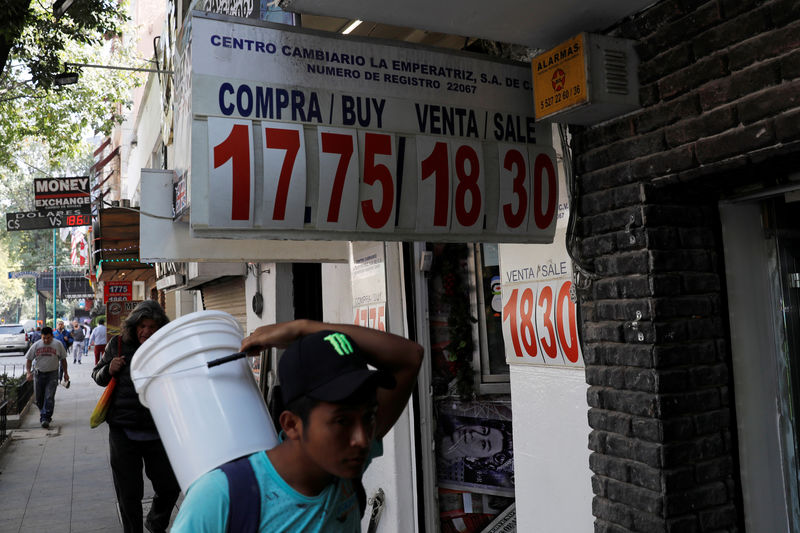MEXICO CITY (Reuters) - Mexico's central bank board members are aiming to keep inflation under control and some believe further interest rate increases may be needed to contain price pressures, minutes of the bank's latest meeting showed on Thursday.
With new Governor Alejandro Diaz de Leon at the helm for the first time since the departure of Agustin Carstens last month, the Banco de Mexico board raised its key rate by 25 basis points to 7.25 percent, the highest in nearly nine years.
The minutes of the Dec. 14 meeting reinforced the bank's more hawkish tone under its new boss, with all members of the four-person board agreeing their main task will be to contain inflation in the medium and long term.
"Some (board members) argued that given the current environment, the current monetary policy stance is not congruent with a trajectory for inflation converging to the 3.0 percent goal toward the end of next year," the minutes said.
There have already been signs some board members believe the bank may have to go further to beat back inflation, which reached 6.69 percent in early December. One argued for a 50 basis-point rate hike in the monetary policy meeting.
"They signaled the inflation outlook has deteriorated and it is likely they will need to raise interest rates again, perhaps as soon as the next meeting, which is scheduled for Feb. 8," said Gabriela Siller, an economist at Banco BASE.
A majority of board members believe reaching the 3 percent inflation target will take longer than anticipated, the minutes showed. The majority said inflation will be close to target rate by the end of next year and hover around 3 percent in 2019.
A majority of board members thought the balance of risks to growth was still tilted downwards, while all of them thought the balance of risks for inflation had deteriorated.

A majority of board members also noted the peso currency could depreciate if talks to renegotiate the North American Free Trade Agreement (NAFTA) are unfavorable. U.S. monetary and fiscal policy changes, as well as concerns over Mexico's 2018 presidential election, could also weigh, while a favorable NAFTA renegotiation could lift the peso, a majority said. The peso